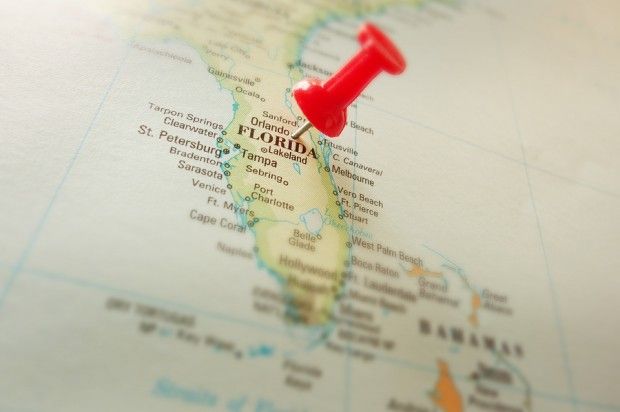Florida regulators have taken over an insolvent domestic residential property insurer, but a deal is in the works for another private company to assume the insurer’s 37,000 policies.
A Leon County Circuit Court judge issued an order earlier this week clearing the way for the state Department of Financial Services to take over Sunshine State Insurance Co.
In issuing the liquidation order, the judge cleared the way for United Property & Casualty Insurance Co. (UPC), which had looked into buying the insurer but pulled out of those talks, to assume Sunshine State’s existing policies.
The Jacksonville-based Sunshine State offers primarily residential homeowner coverage through 500 independent agents. It also offers dwelling fire and wrote federal flood insurance policies.
Sunshine State’s financial woes became apparent in February when the insurer first reported to regulators that it would fail to meet a March 1 deadline to file its 2013 annual financial statement. Sunshine State reported that it had discovered an accounting error related to its 2008 and 2011 catastrophic reinsurance treaties. The cost of fixing those errors, plus an operation loss in the fourth quarter of 2013, forced the company officials to tell state regulators that it could no longer meet the state’s surplus requirements.
Insurance Commissioner Kevin McCarty then ordered Sunshine State to either increase its surplus by $15 million or be acquired or recapitalized by another company along with a good faith deposit as of May 15.
McCarty further ordered that if Sunshine State could not meet the May deadline, the insurer would be required to transfer its policies to another insurer or provide a 45-day written cancellation notice to its 37,684 policyholders.
United Insurance Holdings Corp., parent of UPC, expressed an interest in purchasing Sunshine State in a letter of intent on May 15, the date regulators set for Sunshine State to either increase its surplus by $15 million or find a buyer.
However, a few weeks later, UPC President John Forney, in a letter to regulators, said that after a further review of Sunshine State it would no longer keep that commitment.
“Based on a comprehensive due diligence investigation, a significant investment of resources, and careful consideration, United Insurance Holdings Corporation must terminate the non-binding letter of intent dated May 15, 2014,” stated Forney.
However, United Insurance Holdings, through its affiliate UPC Insurance Co., made a subsequent offer to assume Sunshine State’s existing book of business.
Regulators have until next week to present that transfer plan to the judge for final approval.
If approved as expected, policyholders will have until June 29 to either agree to UPC’s offer of coverage or contact their agent and find coverage through another insurer.
Harvey Bennett, Florida Office of Insurance Regulation spokesperson, said the UPC deal is the best possible outcome for Sunshine State policyholders who otherwise would be scrambling for coverage one month into hurricane season.
“This way the policyholders can be transferred seamlessly as possible rather than having to scramble for coverage,” said Bennett.
Officials said the UPC deal also ensures that those policyholders will be adequately covered through the hurricane season. Because of its weakened financial status, Sunshine State was without catastrophic reinsurance coverage this year.
All Sunshine State policyholders with open claims will be transferred to the Florida Insurance Guaranty Association, the insurer supported state fund that covers claims of insolvent carriers.
FIGA Chief Operating Officer Tom Streukens said the association has yet to receive any claims but is anticipating receiving some.
“We fully expect FIGA to be activated and roughly estimate that there will be 200 to 300 claims we take over,” said Streukens. “Once we are transferred those claims we will be reaching out to those policyholders as fast as humanly possible.”
UPC Insurance writes in Florida, Massachusetts, New Jersey, North Carolina, Rhode Island, South Carolina and Texas, and is licensed to write in Louisiana, Georgia and New Hampshire.
(This story initially appeared in our sister publication Insurance Journal.)





















 Hackers Used AI to Breach 600 Firewalls in Weeks, Amazon Says
Hackers Used AI to Breach 600 Firewalls in Weeks, Amazon Says  Berkshire Hathaway Profit Falls; Insurance Income Lower for GEICO, Other Ops
Berkshire Hathaway Profit Falls; Insurance Income Lower for GEICO, Other Ops  Reinsurance Program Could Wipe Out Need for Calif. FAIR Plan: Legal Exec
Reinsurance Program Could Wipe Out Need for Calif. FAIR Plan: Legal Exec  Why Claims AI Build vs. Buy Decisions So Often Miss the Mark
Why Claims AI Build vs. Buy Decisions So Often Miss the Mark 








